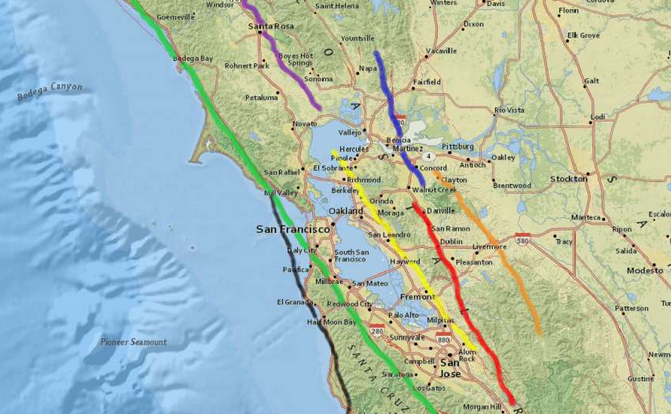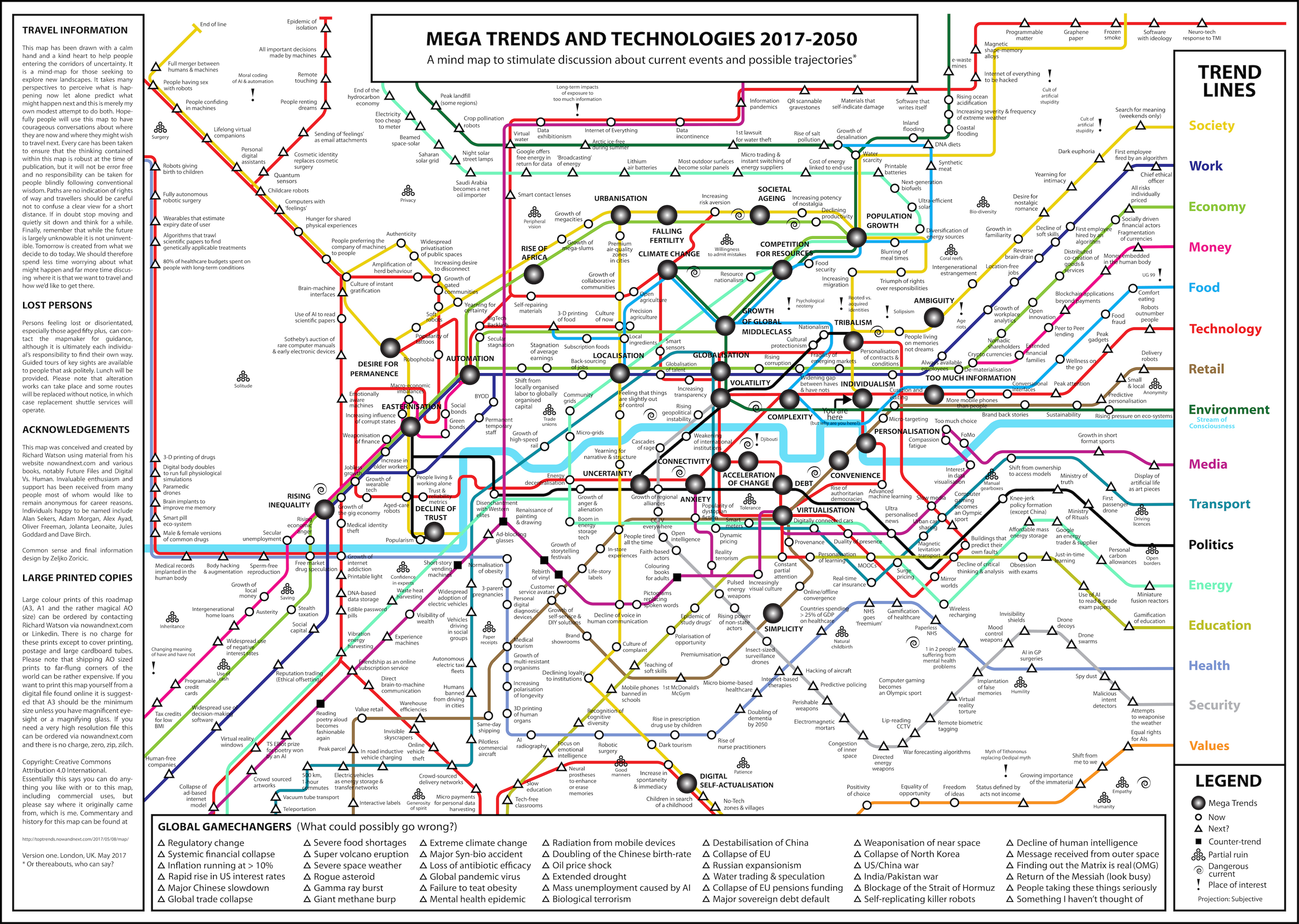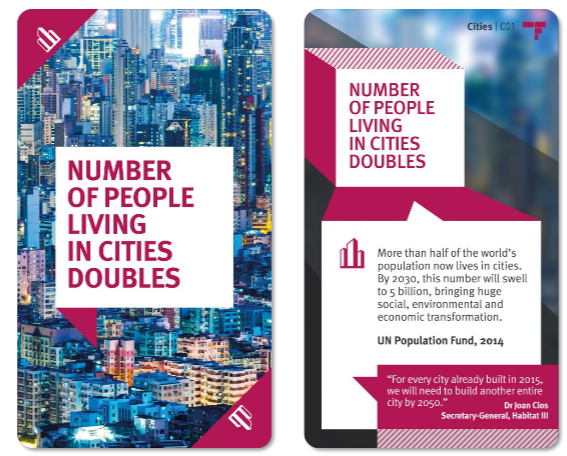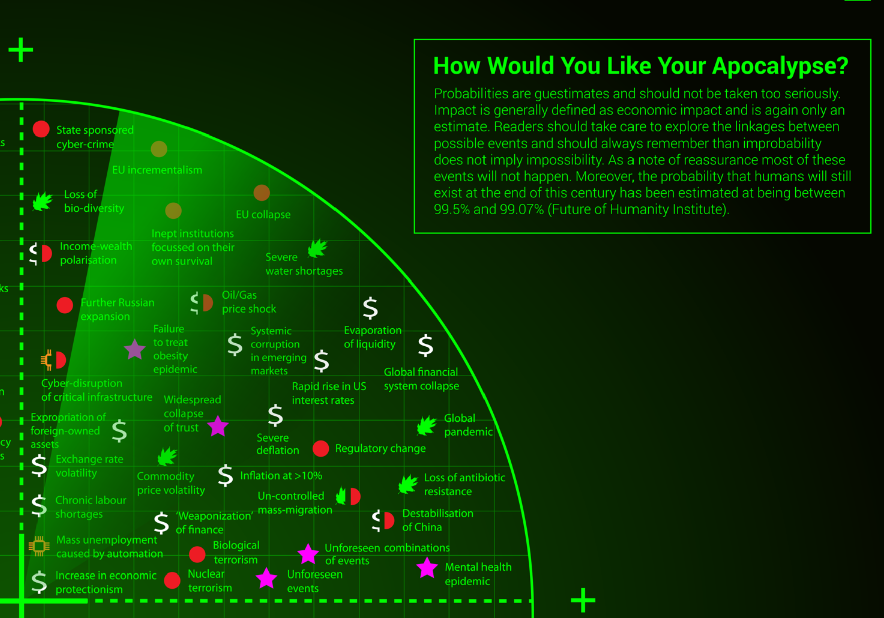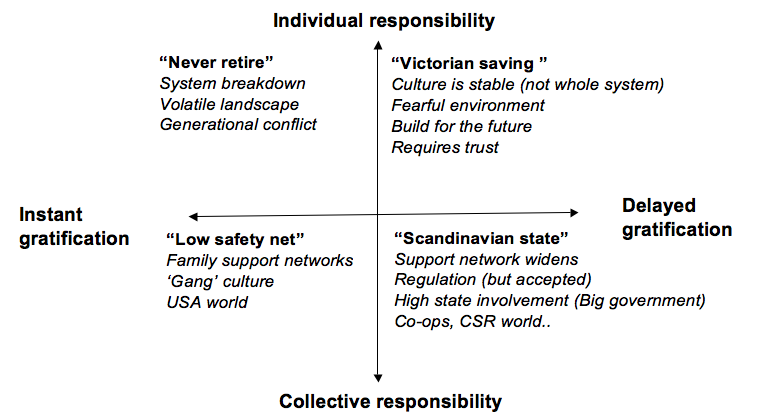Prince Andrew gets into so much trouble over his relationship with Jeffrey Epstein that the Queen steps down in order to create a diversion.
Category Archives: Wildcards
BREXIT Wildcards
A couple of things nobody seems to be thinking about. First, there have been calls for a second EU referendum for a while and the prospect seems more serious with the Labour Party perhaps backing the idea at, or before, the next election. The idea, and it’s a weak one in my view, is that people didn’t quite know what they were voting for last time or people were misled. Sounds just like any election I can remember. But what if there is a second vote and the result is leave again? Then what? The assumption seems to be that a second vote would result in a different result. Not necessarily.
My second wildcard thought is what happens if we have a financial meltdown before 31st October? Could this create an EU collapse before Britain has left the EU?
There’s a book called the Levelling by Michael O’Sullivan, an analyst at Credit Suisse, and in it he argues that globalisation has stopped, Economic growth is weak to non-existent and the next natural dip is long overdue in countries like the US and China. Central banks have accumulated too much power, QE is distorting markets, especially bonds, and is creating a generational divide too through asset price inflation, notably housing. The banking system is still under-regulated (shadow banking is hardly regulated at all) and the big tech companies are too dominant financially. World debt stands at 320% of GDP and risk is networked throughout the entire system. One tiny spark could ignite everything.
Where is this heading? A serious change of direction most probably. I think there’s a 50:50 chance of a global crash either next month (it’s generally October!) or spring 2020 and what will governments ,and the EU in particular, do in such a situation? They have no tools left to use, except, perhaps, for negative interest rates and taxation based upon wealth not just income and that would be explosive. You might create inflation to dilute the debt, but we’ve seen where that ends up.
What if..? (Major Earthquake + Silicon Valley)
I was at a Lloyd’s Insurance event last night and the subject of a major Californian earthquake came up in conversation (not if, when). I’ve written about mega-quakes before, but what ‘ve I’ve never really thought through is the location of Silicon Valley relative to the major fault lines. OMG.
Map key:
San Andreas Fault: Green
Hayward Fault: Yellow
Rodgers Creek Fault: Purple
Calveras Fault: Red
Concorn-Green Calley Fault: Blue
Greenville Fault: Orange
San Gregorio Fault: Black.
Could we walk away from the internet or give up our devices?
I’ve thought about putting this thought into the ether before, but I’m all too aware of confirmation bias and the fact that what I’m about to say might be the future I want rather than the future that is unfolding. I’m also far too aware of the words of the writer Douglas Adams, who said that: “anything that gets invented after you’re thirty is against the natural order of things and the beginning of the end of civilisation as we know it until it’s been around for about ten years when it gradually turns out to be alright really.”
So, I’m being cautious. Nevertheless, I’m becoming aware of a rising tide of discontent regarding Big Tech, social media and smartphone use. A number of people I’ve met recently are also starting to articulate a future with no internet in it or at the very least a future where we have a significantly altered and re-balanced relationship with the internet and our devices.
Exhibit 1. A London lawyer in his twenties that I met last week could foresee a time when people become so disillusioned with the internet, smart phones and social media that they drift away from it. Key issues for him were data security, individual privacy and a lack of censorship with regard to unacceptable material (e.g. easy access of pornography by young kids with smartphones at school).
Exhibit 2. I forecast a Big Tech Backlash two years ago and it appears on my map of megatrends published back in May. I was in Silicon Valley a few weeks ago and while I’m used to reading articles about Facebook being the anti-Christ there was a fairly hostile opinion piece about Google in the US edition of Wired magazine of all places. There was also an article about throwing technology out of younger years education in the San Francisco Chronicle.
Exhibit 3: I’m starting to see words like ‘addition’ being used on an almost daily basis in relation to digital technology.
Exhibit 4: The attitudes and behaviour of Uber recently/generally.
Exhibit 5: The fact that owning the latest smart phone isn’t cool in parts of Silicon Valley. (see also the popularity of ‘dumb phones’).
Exhibit: 6: UK schools starting to end their ‘do as you want/anything goes’ policy regarding the use of technology on school premises. One school I know personally has gone as far as banning pupils from using mobiles during the day. iPad hysteria in educational circles also seems to have died down.
Exhibit 7: Remember e-cards? Exactly. They were the future a decade ago, but it eventually dawned on us that digital can be sterile and characterless while analogue can be sensory. People are sending me handwritten cards again. Also witness the re-birth of vinyl records, paper books and fountains pens. Sending someone an e-card for Xmas might be convenient or cheap, but it can signify that you too are cheap and can’t be bothered to invest time or effort in a relationship. Can deep human needs and desires trump convenience or price?
It should be noted here (because it rarely is) that digital and physical are different on many levels. It’s not so much embracing the one and rejecting the other (a rather binary outlook) but rather working out which is better in a particular context or circumstance.
Exhibit 8: If digital tech is so great why do so many senior people working for companies like Apple and Google send their kids to schools like the Waldorf School of the Peninsula, where there’s virtually no computer to be found? Schools such as this one are increasingly arguing that computers and learning don’t mix well, diminishing attention, inhibiting creativity, and weakening human relationships. This might please Eric Schmidt at Google, who once said, ‘I still believe that sitting down and reading a book is the best way to really learn something.’ (See exhibit 6).
Exhibit 9: The behaviour of teens. Filters on Instagram are becoming passe. Facebook is dead in the water in developed markets and back in schools smart kids are revising using paper cards because, as one explained to me: “you remember things better.”
Exhibit 10: Not an exhibit, but an idea. There are surely events that could radically reshape the digital landscape. What if Google or Facebook were redefined as publishers rather than technology platforms, for example? What if they were regulated in exacatly the same way as a newspaper or TV station? What if they were viewed as monopolies and broken up? Or what if Google simply decided to charge a cent for every search? The biggest vulnerability beyond all this, it seems to me, is simply that the ad model breaks down. Take advertising away and a significant chunk of the internet simply ceases to exist.
These are minor and largely anecdotal examples, but worth watching all the same.
BTW, one thing that isn’t being commonly discussed, surprisingly, is the idea that the data that many tech companies create value from is our data, stolen from us largely without our explicit consent. (oh please, you think people really read those terms and conditions?)
Map of Global Mega Trends
Here you go then. Use this link to get to a high resolution version. A3, A1 and rather wonderful AO sized copies on paper are available upon request (no charge except for print, post and a cardbaord tube). See you in the future.
Strategic conversation cards
Strategy Conversation Cards
Long-time readers may remember that as well as maps I have a thing for cards. I’ve previously helped to create a set of cards for PWC to help CFOs discuss the distant future and I also created a set, along with Oliver Freeman, for Public Libraries New South Wales in Australia. I also have a set of Oblique Strategies cards from Brian Eno and Peter Schmidt along with various vintage playing game games.
My latest collaboration is with Tech Foresight at Imperial College with whom I’ve created a set of conversation cards aimed at people in R&D, horizon scanners and people engaged in foresight activities. In this instance there are 64 cards from four categories – cities, resources, data and workforce – along with five wildcards or jokers. The point of the pack is again to stimulate discussion about alternative futures. The cards are still in beta and there aren’t may sets around currently, but if you’d like a set they are available at cost, which is £30 plus postage.
The Wildest of Wildcards
A few years ago someone came up to me after I’d given a speach at a risk conference and said that I was missing a wildcard risk. He proceeded to tell me that the world would change if we gained the ability to communicate with animals. The risk would be that they might not be happy with what we were doing to our (their) planet.I thought it was a good wildcard/risk, but not one we need worry about too much.
So a few years on and I’ve just picked up a book called Pulphead by the American writer Jeremiah Sullivan and randomly opened it at page 309. The chapter is titled Violence of the Lambs and it’s about how animal behaviour is possibly changing, possibly in reaction to climate change or the continued encroachment of the human species. In short, what might the biological endgame be for some of the more evolved animal species?
What we are talking about here is essentially animals attacking humans. Like Hitchcock’s The Bird’s, but with bears, wild dogs, chimps, elephants and killer whales as well as crazed seagulls. If you remember what happened to Steve (Croc-hunter) Irwin with a ray you might get the idea. The chapter, indeed the whole book, is worth a read.
Global Risks
Scenarios for the future of pensions in the UK
Here’s the pensions scenario set. It was broadly agreed that the state will move away from pensions provision and so will employers – which leaves things firmly at the feet of individuals, most of whom seem to ignore the issue until it’s too late. Delayed gratification is obviously saving and instant gratification is obviously spending. Lots wrong with this but it did create an interesting conversation. Takeaways? Key one is the importance of seeing the difference between a driver of change and a consequence. Another takeaway is the critical role of assumptions.
What assumptions have been made here? One assumption could be that societal ageing and a declining birthrate are fixed trends. What if they aren’t? What if people start dying really young again due to diet/lack of exercise or people suddenly decide to have lots of children again (to care for them in their old age)?
Another assumption might be that people are saving right now but not in ways that pensions experts recognise as saving.




